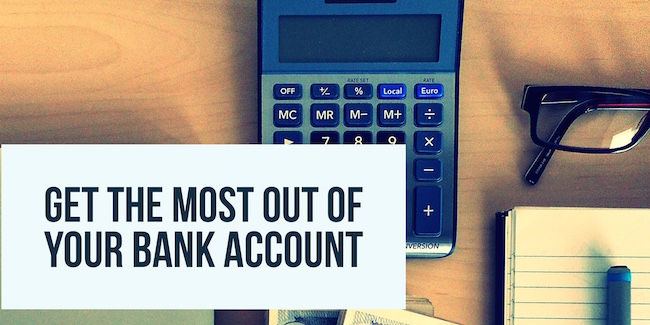If you are new to the world of freelancing, you are dealing with lots of decisions. LLC vs. Sole Proprietor vs. S-Corp. Mac vs. PC. What services do I pay for and where can I save money? But you can’t do much of anything until you’ve setup your bank accounts. It is important to choose the right accounts to set yourself up for success. Read on to learn about the core accounts you need and how to use them in your freelancing business.
Table of Contents
ToggleBusiness Checking
Your business checking account is the financial nerve center for your business. Choose a checking account at a bank that meets your own unique needs. Consider fees, branch locations, and account features when choosing your new account.
Some of the best business checking accounts for freelancers include Capital One 360 Spark Business Checking (fee free, online only), Chase Business Checking (fee free with a $1,500 balance, large network of branches), or a local credit union (low or no fees, convenient locations, more personalized service).
How to Use Your Business Checking
Each payment you receive and each expense you pay ultimately flows through your business checking account. It can be connected to digital wallets, used for credit card payments, accept mobile check deposits, and more.
You can use your business checking debit card for expense payments if you choose, or use a business credit card. More on that in a moment. You should also pay yourself from your business checking. Under no circumstances should you share your personal and business checking account. It is important to keep business finances separated, then pay yourself from your business checking.
Business Credit Card
Each time you spend money on your business, you can earn valuable credit card reward miles and points. Why spend with a debit card or cash when you can get free flights, hotel stays, gift cards, and cash back that you can use to grow your business or treat yourself to an occasional free vacation.
Some of the best business credit cards include the American Express Starwood Preferred Guest and Chase Ink cards for lucrative travel rewards.
How to Use Your Business Credit Card
Every possible expense should go on your business credit card. Then pay it off in full each month from your business checking to avoid expensive interest charges. Using a credit card allows you to earn rewards and gives you additional benefits like purchase protection, travel insurance, and the ability to dispute charges.
A credit card also protects your business from fraud in ways that a debit card can’t. If someone steals your card number and uses it for fraudulent purchases, it can drain your bank account and take months to get your money back. With a credit card, the purchases are removed from your account before you have to pay a cent. Pro tip: this is true for personal credit cards and bank accounts as well.
Business Savings
The last account you need for your new freelancing gig is a business savings account. This is less important than a checking account, but offers some benefits that a checking account does not. For example, savings accounts pay interest and let you put money away for a rainy day with separation from your operating cash.
It is best to open a business savings account at the same bank as your checking account for easy online transfers and a less complicated banking setup.
How to Use Your Business Savings
Your business savings account is a good place to store cash for future tax payments or a business emergency fund. For my business, each time I pay myself a dividend I transfer 30% into my business savings. That gives me enough cash for my next quarterly tax payment or annual tax filing.
Sometimes during a good month, I transfer extra cash into the business savings that I can draw on in the future if I ever hit a bad month or two and need to top up my checking account for my weekly payroll.
Keep It Simple and Separate
Your golden rule of business banking should be to keep it simple and always separate from your personal accounts. Intermingled business and personal finances can lead to messy taxes and can lead to legal issues if you ever find yourself on the wrong end of a lawsuit. Making things too complicated can be a distraction from your business and could lead to errors and mistakes.
Once you have these three accounts setup, your freelance business can move forward without worry of meeting your financial needs.
















